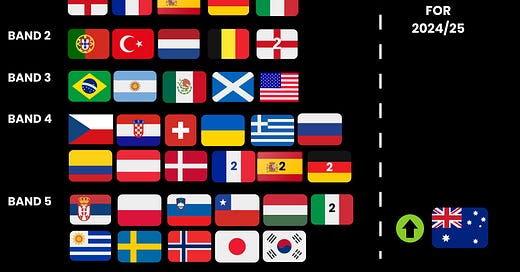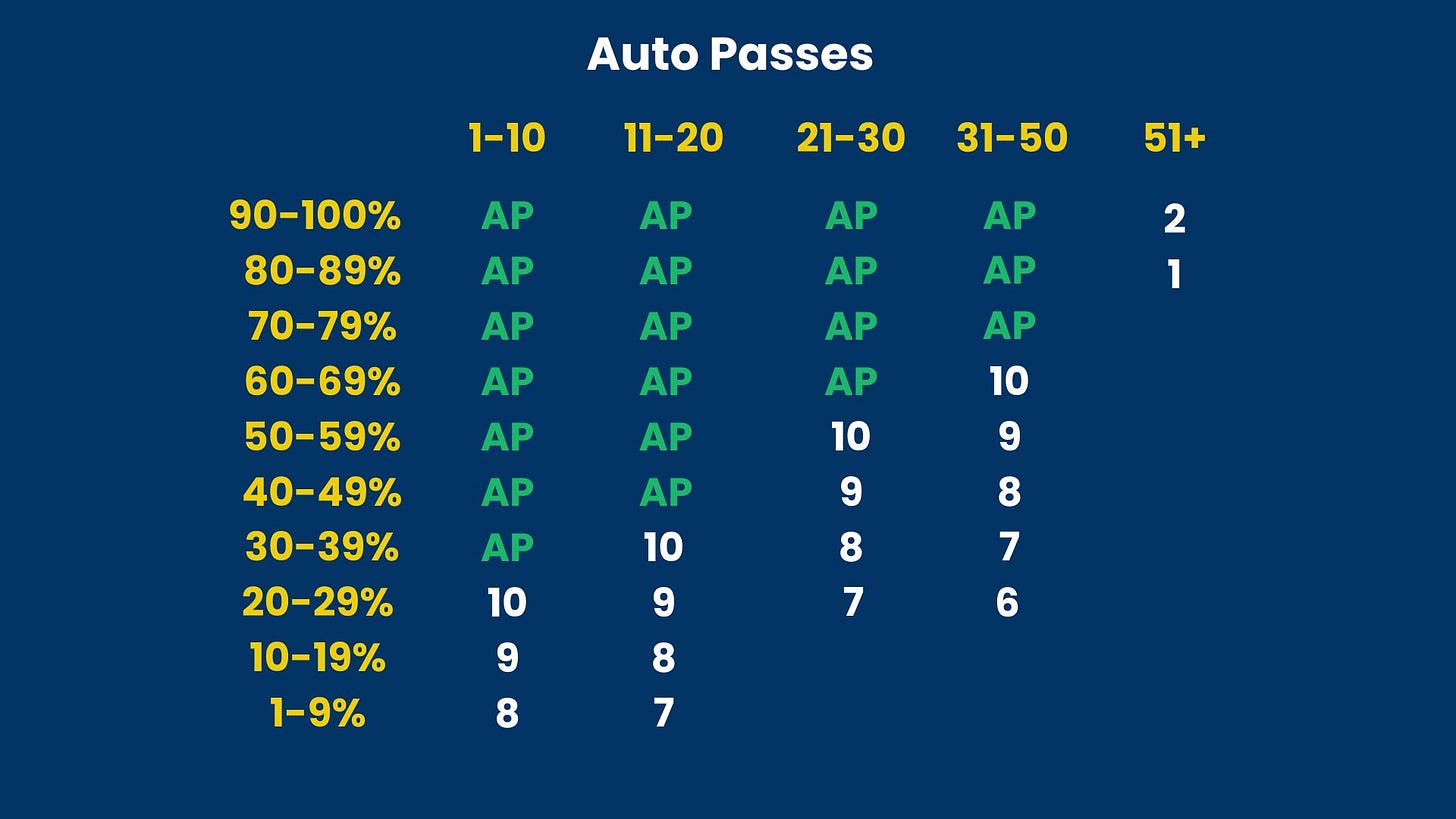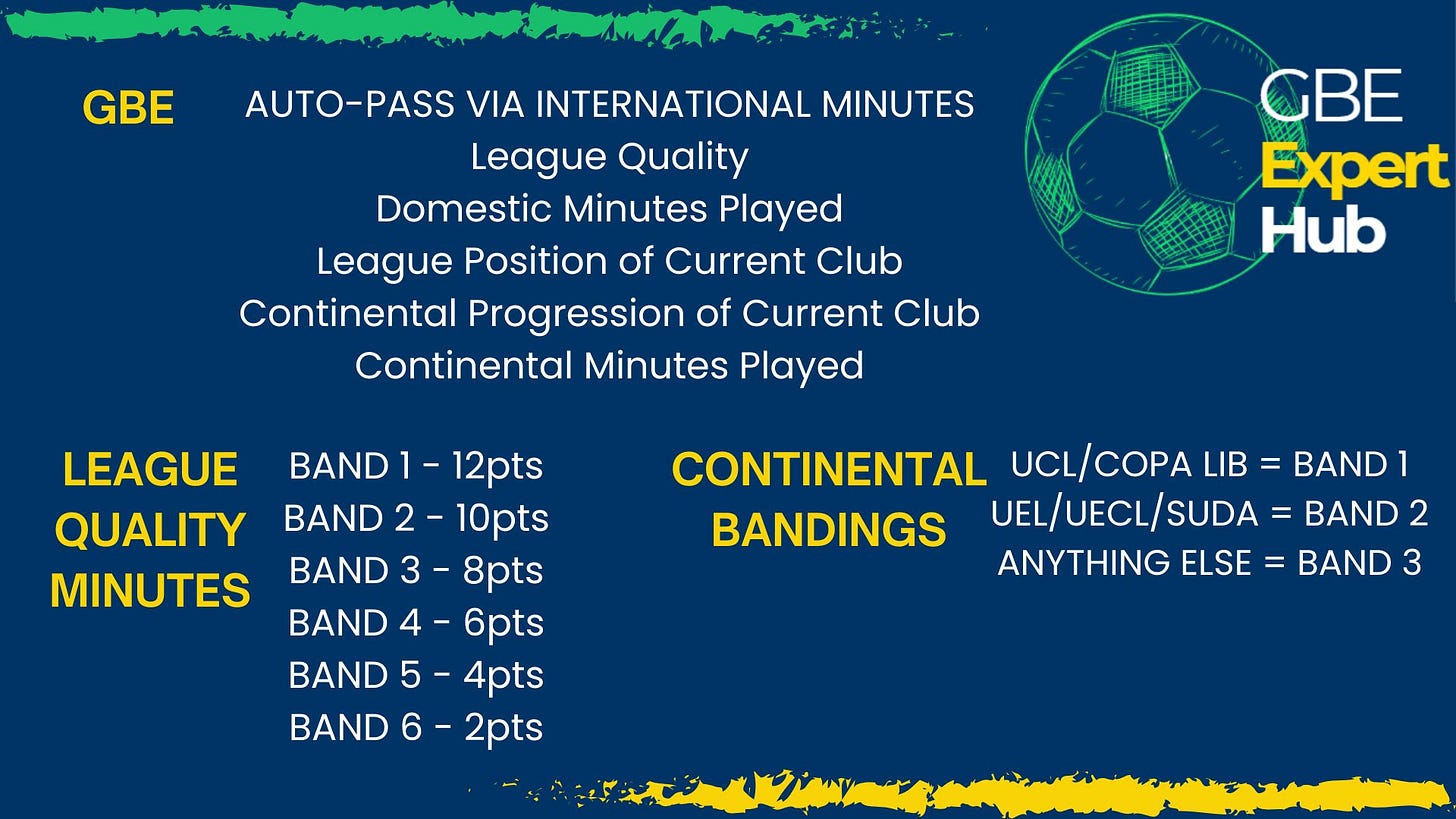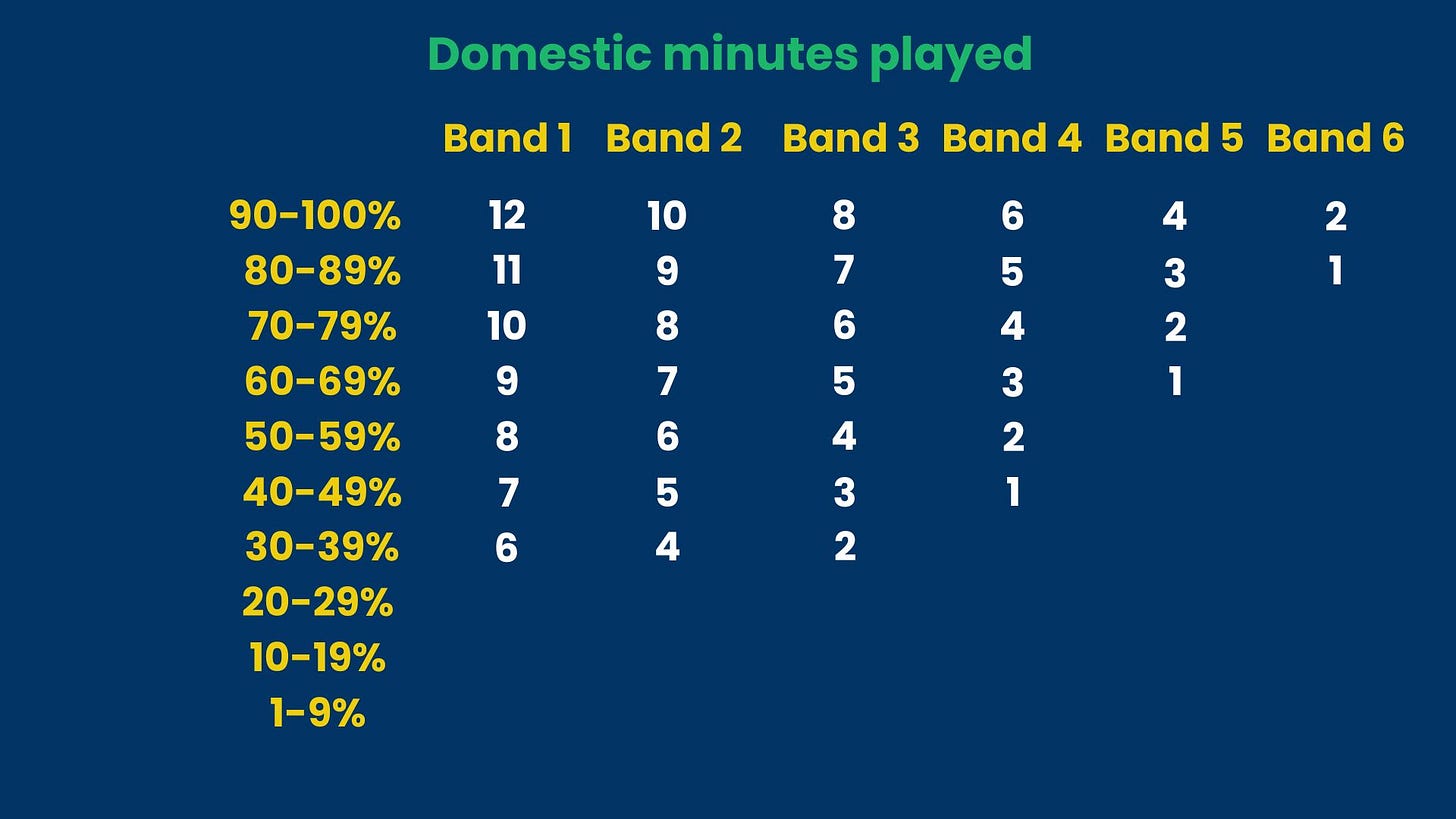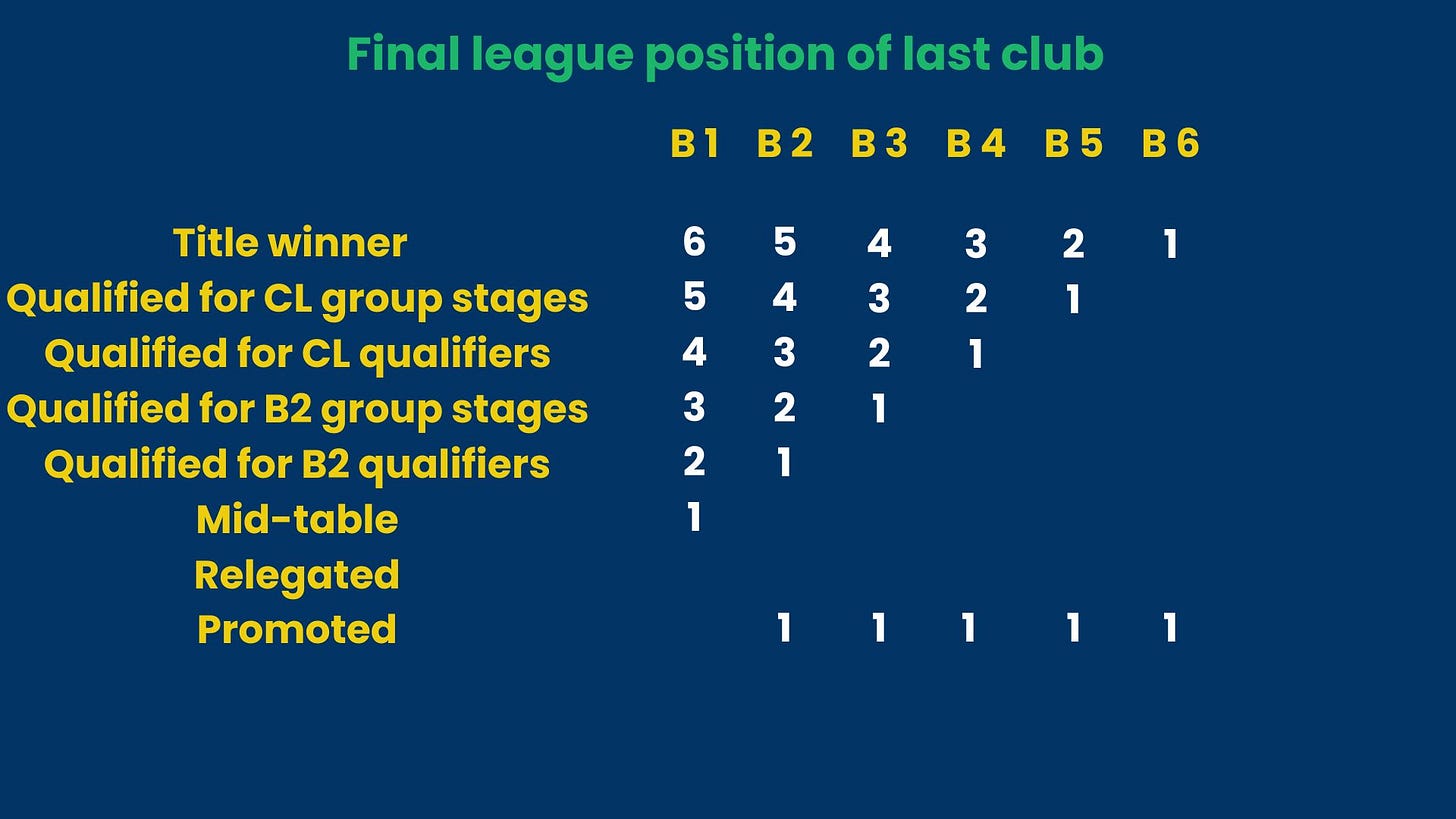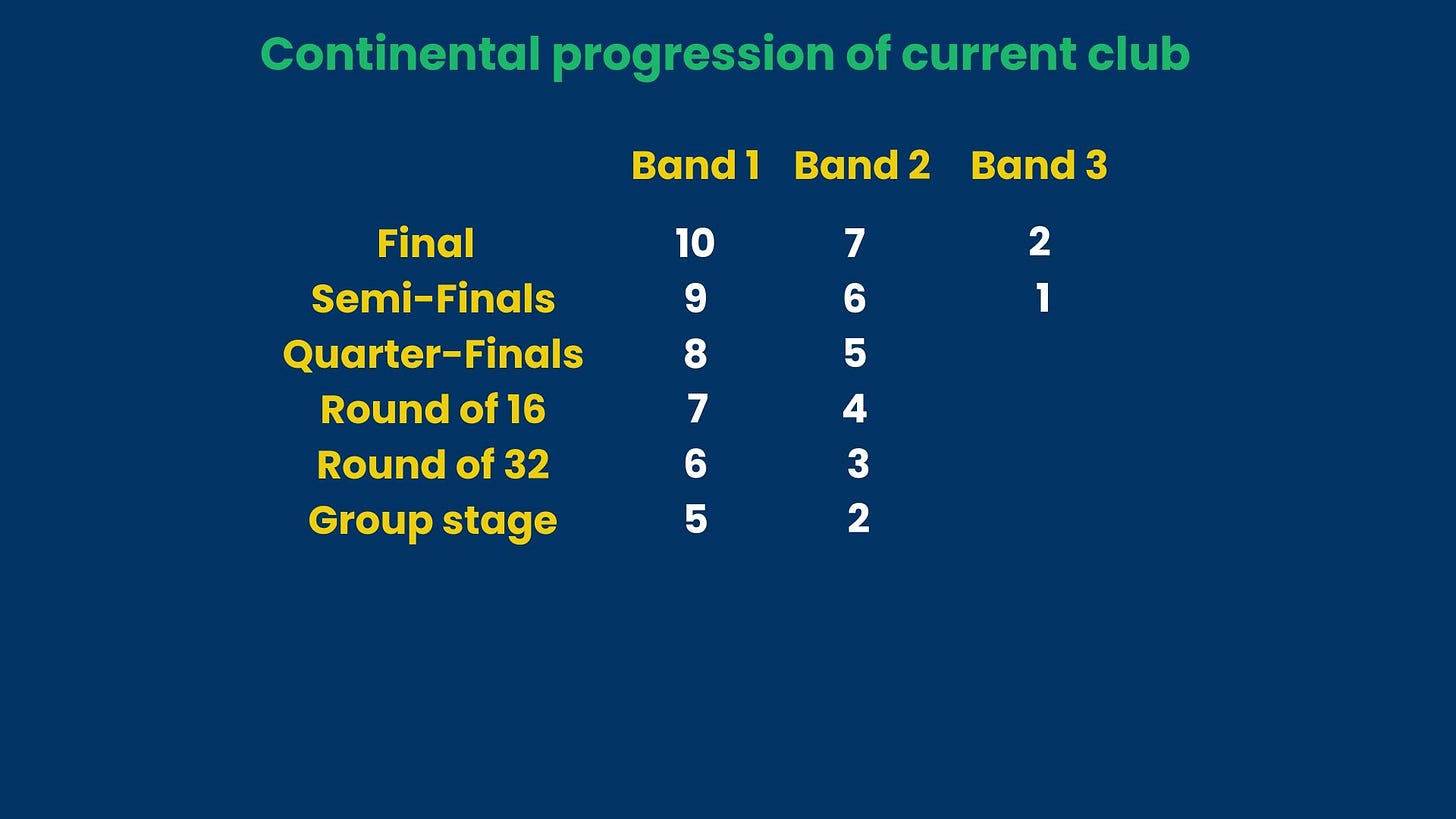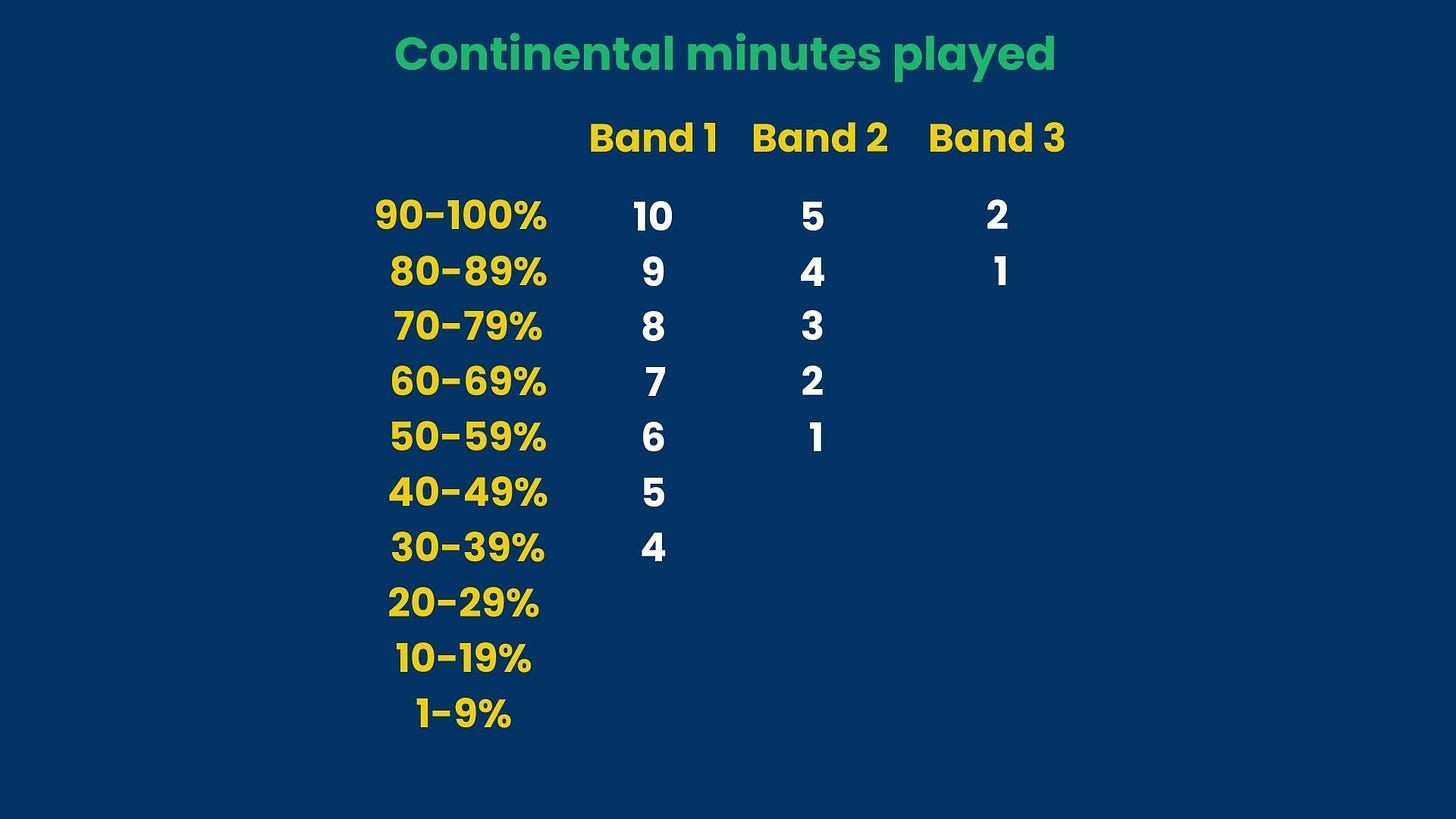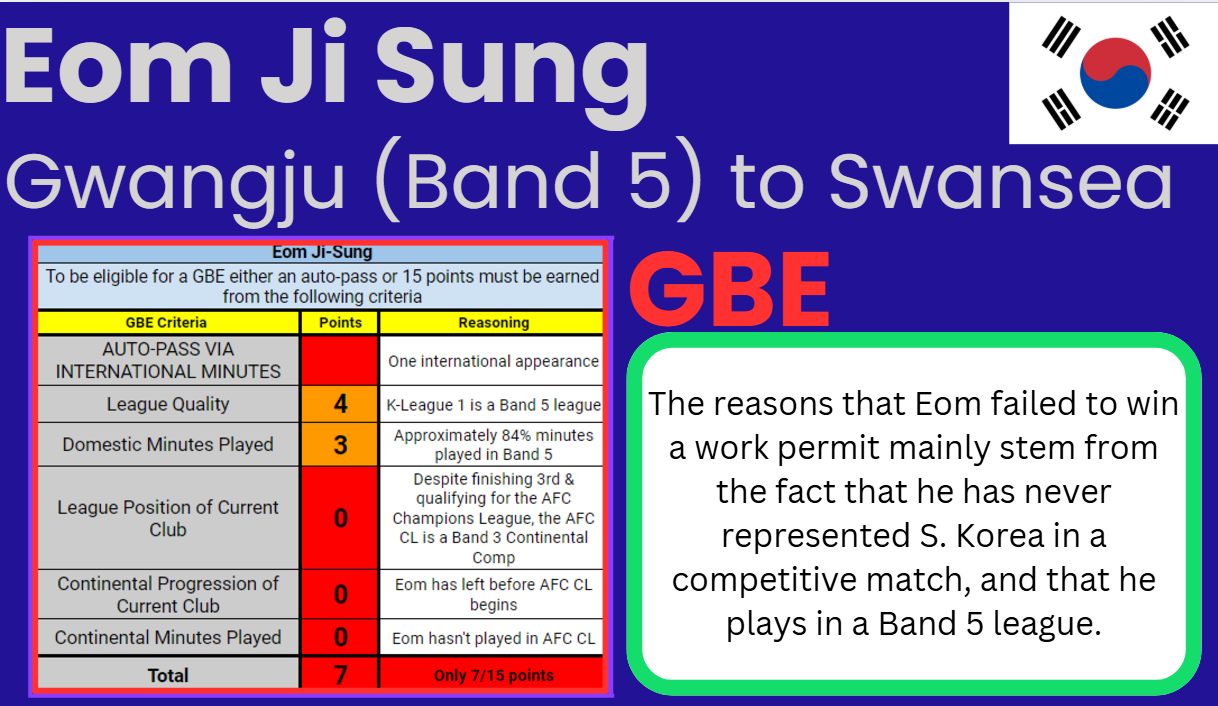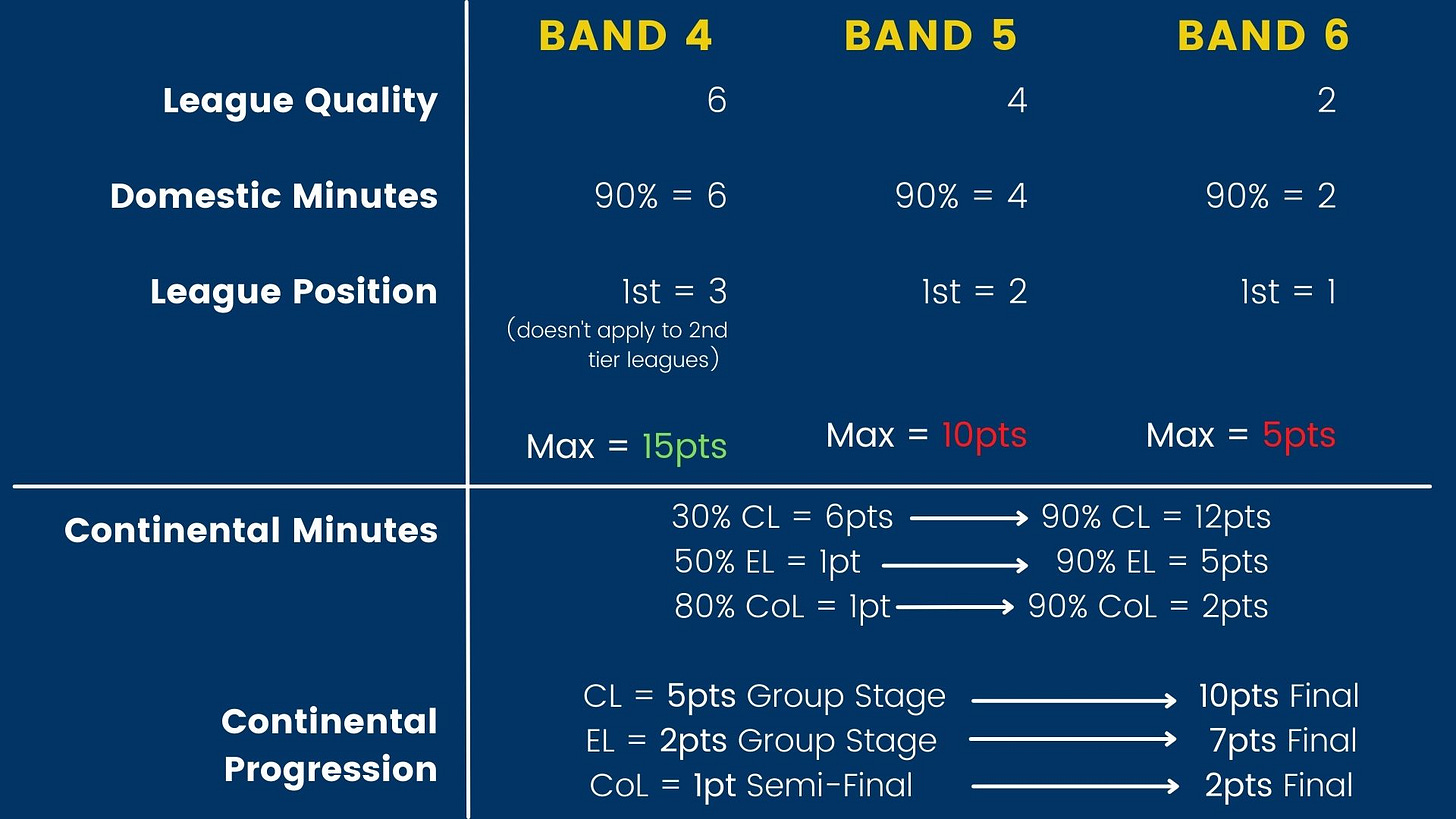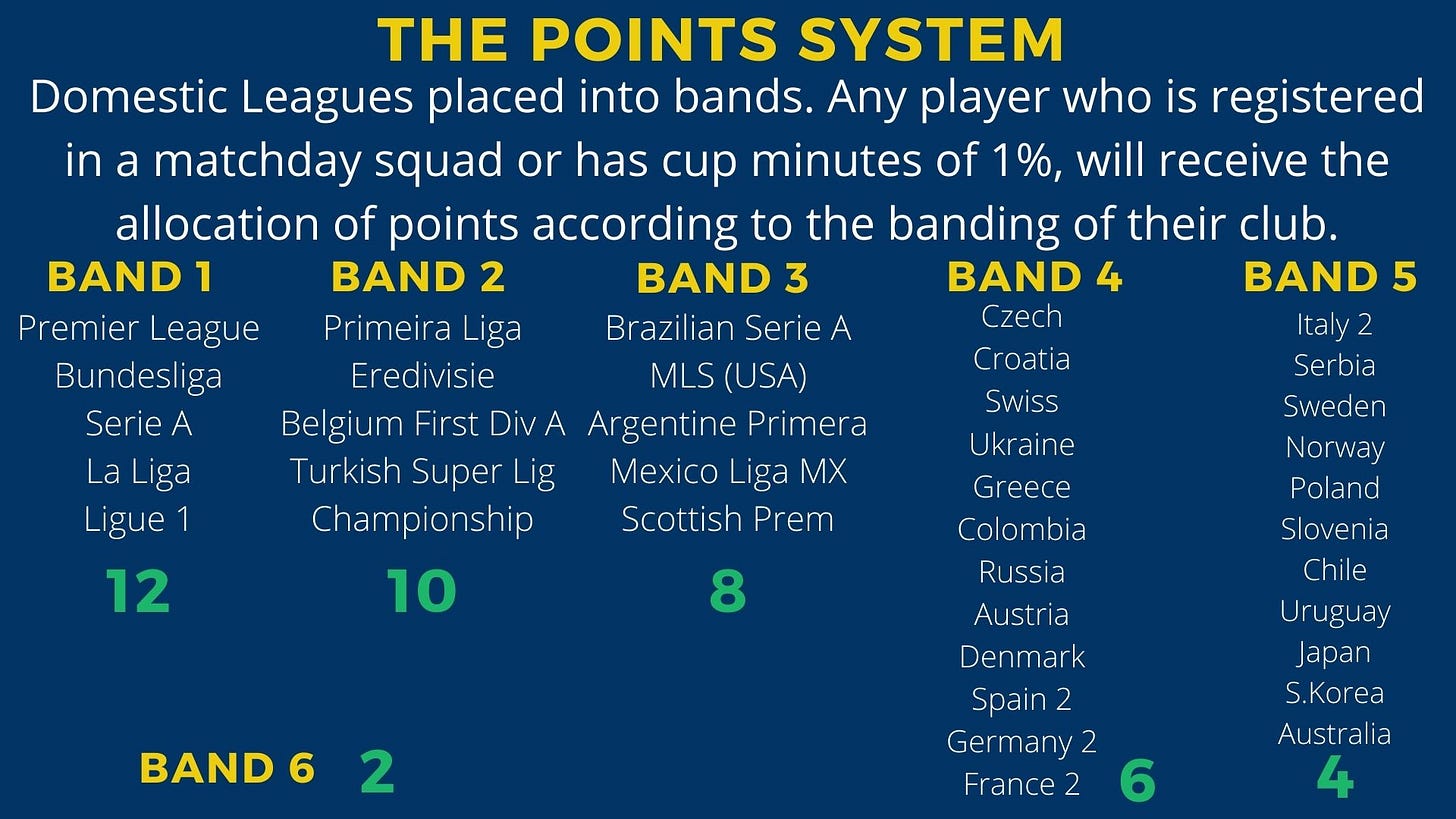Welcome folks, to the beginning of The GBE Expert Hub.
GBE stands for Governing Body Endorsement, and, since January 2021, has been required for any non-British national to play professional football in any UK constituent country.
The key to players getting a GBE is for them to attain either an autopass, through their international football record, or 15 points via the criteria that the FA have published in their documentation. The full documentation is available on their website for anyone to read through…but who wants to do that??
I have attempted, over the last four years, to cut all of the effort and complication out of the rules and regulations when I publish content, and that is what much of this platform is going to be about.
We will start today with just providing a basic breakdown of the 2024/25 regulations as regards GBE. The ESC stuff will come tomorrow to keep things simple and separated.
How did we get here?
Without going into the depths of UK politics it is perhaps just easier to say that the results of a referendum held on the UK's membership of the European Union conducted back in 2016 meant that the way that footballers were able to be signed from Europe had to change.
The EU's freedom of movement policy had previously meant that footballers who had an EU passport could work in the UK without any concern over their rights to do so. Once Brexit was signed and sealed, this obviously had to change.
To this end The FA and the Home Office worked together to come up with a system to use to award work permits under a Governing Body Endorsement (GBE).
The GBE regulations were published in December 2020, and applied in the January 2021 transfer window. There are two main avenues to attain a GBE for a player: an autopass or a points tariff in which a player has to earn 15 points to be eligible.
So, how do these routes work in practicality?
The autopass
The most straightforward way of attaining a GBE is via an autopass.
This is achieved by hitting a certain percentage of minutes played for your national team during the previous 24 months (the international reference period).
As you can see in the image the criteria for the autopass is weighted towards the higher ranked national teams. This is because the FA would prefer to encourage higher quality players to be recruited. This is a theme that we will see repeated in the points system.
If the player doesn’t have enough minutes for the autopass then they can still earn some points towards the GBE. These points can be vital in the calculation process.
We should also note that competitive international matches are prioritised when assessing a player’s international minutes. Friendlies are only included if and when a nation’s percentage of competitive international matches falls below 30% in the last 24 months. Since the advent of the Nations League, this is very rare.
Point to note:
The FIFA rankings are amalgamated over the international reference period (24 months), so it is important that the FA list is checked before making a judgement on a player.
For many nations, this will make little difference as they never leave the top 50, but many nations have much greater range of movement over time.
The current 41-60 range (as of July 2024, the most recent update on The FA website) looks like this:
41-50: Turkey, Cameroon, Costa Rica, Norway, Canada, Cote D’Ivoire, Romania, Mali, Slovakia, & Greece
51-60: Panama, Paraguay, Qatar, Saudi Arabia, Venezuela, Ireland, Burkina Faso, Finland, Slovenia & Jamaica
15 points. How can you get them?
There are a number of criteria listed in the documentation that players can earn points in to get up to the 15 point threshold.
The easiest way that I tend to use to think about it when assessing a player is to begin with the league that they are playing in and the domestic minutes that they have played.
If looking at a player from Band 1 or Band 2, those two criteria are enough to pass 15 points on their own.
If you need to dig deeper, then the next easiest thing to add on is the club's previous finishing position. The points vary by band again, and you will likely need to understand the continental qualification rules for the league to get this right.
If the player has been part of a continental campaign, then it is also worth considering how far their club has progressed and what percentage of minutes the player played in the run.
Different continental competitions carry different levels of points in a similar way to the domestic league bandings. In UEFA, the Champions League is classed as Band 1 and the Europa League and Conference League are Band 2.
*IMPORTANT* It is a lesser known fact of the regulations that appearances in the qualification rounds of competition do still count for GBE points.
If you are still hoping for a couple of extra points at this stage then it might be worth just having a quick look back at the international scene.
As we mentioned above, if a player does have international honours, but not enough for an autopass, then they can still have a couple of points which may be the difference of achieving the magic 15.
Point to note:
There are lots of GBE calculators out there, and by-and-large they do a decent job, but, as far as I am aware, none of them are 100% accurate. Often the range of calculators produce a myriad of totals, and it is very difficult to know which number is correct.
This is why knowing the regulations can really help.
A service that The GBE Expert Hub can provide is an eligibility check for players. If you do want to know the eligibility status of a player, or group of players, get in touch and you will be provided with a thorough breakdown of the criteria and an accurate total of points, alongside potential next steps.
Example
The exceptions panel
One thing that I get asked about probably more than anything else is the exceptions panel.
In the literature it states that any player who has 10-14 points can be taken to exceptions panel, however, the vast majority of these players, at least in England, will probably get an ESC, so the need for an exceptions panel has been reduced dramatically.
However, some clubs may want a player to be on a GBE straightaway for many reasons, so may enact the exceptions panel. To ‘win’ at exceptions panel, a club has to prove that the only reason that a player didn’t attain the 15 points was through “exceptional circumstances”.
The only exception to this is for a ‘youth player’, deemed to be born on or after 1st January 2003, where a club would have to prove that “the Youth Player shows significant potential and is of sufficient quality to enhance the development of the game in England and justify the Exceptions Panel recommending that a GBE be awarded.”
Again, this would usually mean that the player would be eligible for ESC, which means that this would be a much easier route for a club to take, as we will look at tomorrow.
The bandings
The GBE bands are important because of the different levels of points attached to them, as mentioned above
The image above depicts the most up to date men's bandings. The women's bands are totally different for obvious reasons, and will be dealt with in another of the free 12 Days articles.
These bandings have changed over time, but the structure and the majority of leagues have stayed the same since inception in 2021. Bands 1 and 2 haven't changed at all, Band 3 has seen the MLS come in for the Russian Premier League, and Bands 4 and 5 have seen some changes over the years, but with 70-80% of the leagues remaining the same.
The reasoning for which leagues go into which bands is something that has never been made public. The upper bandings are perhaps fairly obvious with the popularised “Big 5” taking the Band 1 slots, and some of the other popular European leagues in Band 2.
North and South America actually get an improved deal out of this arrangement than how it was pre-Brexit. It is now very possible to sign players directly from Brazil, Argentina, Mexico, and the MLS, without the player being a full international. However, it would require a very high percentage of minutes played to attain the 15 points just domestically. The South American continental competitions, the Copa Libertadores and the Copa Sudamericana, are highly rated in the documentation though, so players taking part in them will likely hit the magic 15 easily.
Bands 4 and 5 are the hinterlands of the system. Practically impossible for players to achieve a GBE from playing in these league alone, but combined with a decent run in continental competition or some international recogniition and it is still possible.
The problem for potential recruiters is that it is difficult to design a system around scouting these leagues because of the nature of the GBE status.
As for leagues in Band 6, this is the wilderness in terms of gaining a GBE. If a player plays in any of these leagues then the only route to the UK is through ESC…which leads nicely into tomorrow's piece!


